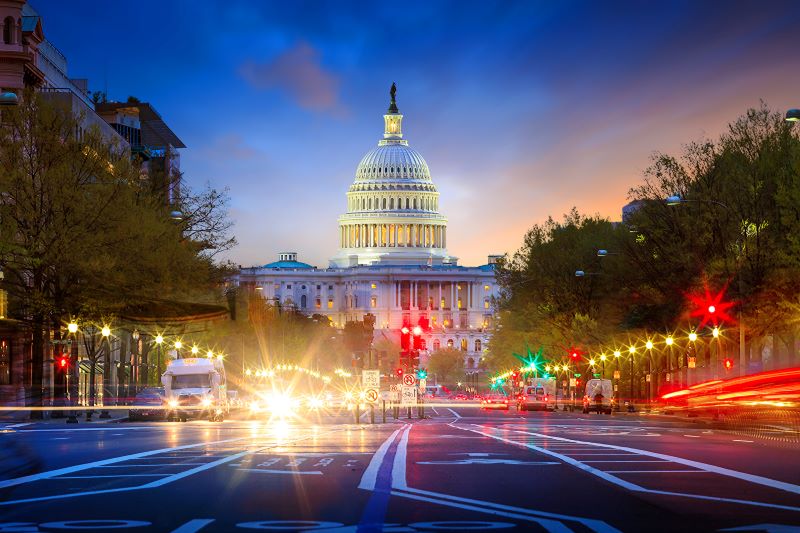Recommended

Blog Post
With the end of the year fast approaching, our team has rounded up a collection of CGD’s latest analysis and commentary on US development policy. From COVID-19 to climate finance, our experts and policy team have been hard at work tracking major issues in US development policy and bringing new solutions to the table.
Looking back, 2021 brought the advent of a new presidential administration which has recommitted to global engagement and promised new investment in climate finance and sustainable infrastructure, while pledging to make its foreign aid more inclusive and locally led. But these ambitions are being tested by major challenges, including the emergence of COVID-19 variants that complicate the fight to bring the global pandemic under control and an increasingly dire situation unfolding in Afghanistan—where greater US leadership is sorely needed.
We hope you’ll read on for some of the issues we’ve been following most closely of late and stay tuned for more in the year ahead.
Power’s Vision for an Inclusive USAID
A Dawning of the Age of Development Inclusion?
In honor of USAID’s 60th birthday, USAID administrator Samantha Power delivered a speech outlining her vision for the agency’s future and announcing an ambitious reform agenda centered on making US foreign assistance more inclusive. Erin Collinson, Megan O’Donnell, and Sarah Rose welcome many of Power’s reform commitments while identifying potential obstacles and offering suggestions for realizing (and measuring) meaningful progress.
Read the blog here.
A Q&A with Randy Tift
Reflecting further on Power’s announcements, Sarah Rose sat down with Randy Tift—who co-led USAID’s reform efforts under the last administration—to explore the agency’s track record on advancing locally led development and prospects for future success.
Read the Q&A here.
China’s Growing Multilateral Footprint
A new CGD policy paper provides the most comprehensive picture yet of China’s growing influence across the multilateral development system. Scott Morris, Sarah Rose, and Rowan Rockafellow aggregate and analyze data from over 75 multilateral development banks, UN agencies and other entities, and multilateral sector-based funds like the Global Fund.
Explore the findings here.
In an accompanying brief, the authors directly compare the United States’ and China's standing and status in key multilateral organizations and funds. They examine China’s unique position as an increasingly important donor and a beneficiary of the system—both in terms of subsidized loans and procurement contracts.
Read the brief here.
US Global COVID-19 Response
The White House COVID-19 Summit
Nearly two years in, the pandemic continues to upend lives and livelihoods around the world. Erin Collinson and Amanda Glassman reflect on commitments announced at the US-hosted Global COVID-19 Summit in September—while pointing to the critical work ahead to translate pledges to reality.
Get the takeaways here.
COVID-19 Relief Spending
Erin Collinson and Jocilyn Estes track the status of the supplemental funding appropriated by Congress for international COVID-19 response—a pool of money that is very nearly tapped out.
Read what’s next for global health spending here.
The “D” in DFC is for Development
Four Big Questions for Scott Nathan
President Biden’s pick to lead the US International Development Finance Corporation (DFC), Scott Nathan, recently appeared before the Senate Foreign Relations Committee. Ahead of his nomination hearing, Erin Collinson and Jocilyn Estes identified four big questions for DFC’s next CEO—including how the agency will protect its core development mandate and where it might plausibly serve as a counterweight to China.
Read the blog here.
Belize’s Big Blue Debt Deal
Clemence Landers and Nancy Lee dissect DFC’s announcement of a new blue bond agreement with Belize and discuss the scalability of debt-for-nature instruments.
Read the analysis here.
Focusing on DFC’s Mandate
Erin Collinson and Charles Kenny underscore the downsides of a legislative effort that would weaken the DFC’s development mandate by encouraging the agency to invest in higher income countries.
Read the blog here.
Challenges ahead for MCC?
The Millennium Challenge Corporation (MCC) faces a looming budget rescission and a dwindling number of potential country partners. Ahead of a fall congressional hearing, Sarah Rose explains why lawmakers and everyone else) should take notice of these and other issues that are on the horizon for the small, growth-focused aid agency as it approaches its 20th birthday.
Explore the key issues here.
Stalled USAID nominations
The current administration has worked at an impressive clip to nominate individuals to leadership positions at USAID, but Senate delays have stalled the confirmation process. Erin Collinson, Jocilyn Estes, Christy Beauchemin compare nomination and confirmation timelines for key US development policy positions across recent administrations to see how the current pace stacks up.
Read the commentary here.
US Climate Finance Ambition
The Role of the US
President Biden has committed to increasing US international climate finance to $11.4 billion annually by 2024. Sarah Rose and Jocilyn Estes review US development agencies’ climate-related spending and put forth key questions that USAID and MCC should address when implementing their climate strategies.
Read the blog here.
Arcane Climate Finance Accounting
In this piece, Scott Morris points to choices in US accounting practice that leave out multilateral development bank contributions to climate finance.
Read the blog here.
Evidence-informed investments in the Northern Triangle
The administration has pledged increased investment to address the “root causes” of irregular migration from the Northern Triangle region. Along with Stanford’s Immigration Policy Lab, CGD experts review the evidence on what works when it comes to tackling drivers of irregular migration and provide recommendations to help USAID pursue evidence-informed programming and contribute to a growing body of research.
Read the blog here.
Crises in Afghanistan
Enabling Urgent Financial Flows
One of the world’s worst humanitarian crises is unfolding in Afghanistan and the country’s economy teeters on the precipice of collapse. While the US government will need to avoid acting in a way that materially or politically supports the Taliban, Sarah Rose, Mike Pisa, and Sir Mark Lowcock call upon the United States to lead in forging a middle path that allows more urgent financial flows to reach ordinary Afghans without bolstering an unsavory regime.
Read their call to action here.
No Time to Wait
In a new opinion piece, CGD president Masood Ahmed acknowledges the difficult decisions facing the United States and its international partners when it comes to Afghanistan, while stressing the dire costs of inaction. While there are no good options, there is also no time to wait.
Read the op-ed here.
G7 Summit: Who’s Building Back Better?
At this year’s G7 Summit, leaders announced a new initiative to drive investment in sustainable infrastructure in low- and middle-income countries. Billed as an alternative to China’s Belt and Road Initiative, Build Back Better World (B3W) promises greater transparency and strong quality standards.
You can watch Scott Morris host deputy national security advisor Daleep Singh for a conversation on the US approach to operationalizing B3W here, and read about how Charles Kenny interrogates the roles for private and public finance in critical infrastructure development below.
Read the blog here.
And if you're interested in learning more, please explore our page, where you can access all CGD work on US development policy.
Disclaimer
CGD blog posts reflect the views of the authors, drawing on prior research and experience in their areas of expertise. CGD is a nonpartisan, independent organization and does not take institutional positions.
Image credit for social media/web: Adobe Stock





